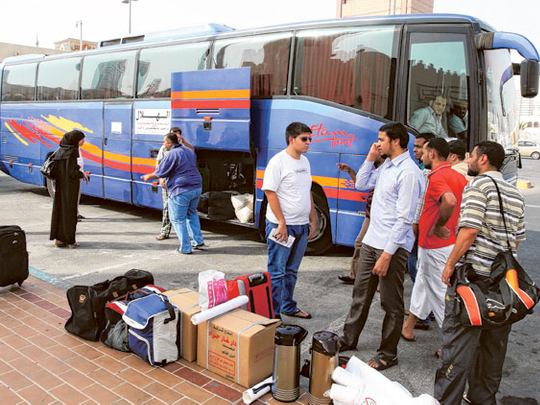
Dubai: Health officials in the UAE have urged residents to get the meningitis vaccine at least ten days before travelling to Saudi Arabia for the annual Haj pilgrimage.
They have been asked to visit their nearest branch of the Ministry of Health’s preventive medicine department for the vaccine, proof of which is needed for a Saudi Haj visa.
Any accompanying children aged two and older must also get the vaccine ahead of the pilgrimage, taking place in Makkah later this month. Pregnant women are usually excused from the requirement.
In a statement, the Ministry of Health said the side effects of the vaccine are tolerable, with slight redness, a burning sensation or a small rise in temperature following the vaccine.
It added that free health checks are provided through health cards issued by health centres to pilgrims’ Haj operators.
It is preferable to have the checks done at the centre where pilgrims’ registered, to keep track of their disease history and health file.
Karim Al Zarouni, acting head of the Ministry’s official Haj delegation, urged pilgrims to avoid crowded areas when possible, and to take steps against exhaustion and sunstroke.
They have been further advised to drink enough water, bathe frequently, and keep surroundings clean. Pilgrims should have light meals from trusted sources, the statement added.
Fruit and vegetables should be washed before eating.
Pilgrims should not hold back the urge to urinate as a delay can cause health problems, the advisory said.
They should immediately approach the campaign doctor if they sense an illness.
“These health procedures are set by Saudi Arabia to ensure the safety of the pilgrims from any infectious diseases and state the importance of obtaining a valid meningitis vaccination certificate either during Haj or Umra (a lesser pilgrimage) or before the arrival of the pilgrim to Saudi Arabia not less than ten days and not more than three years,” Al Zarouni said.
Meningitis is an infection that causes swelling of the thin layers surrounding the brain and spinal cord.
Some forms are contagious, spreading from person to person.
Every year millions of Muslims from around the world crowd together for rituals in and around Makkah, Islam’s holiest city.
Many pilgrims travel in groups organised by Haj operators.
They are flanked by medical delegations or “campaign doctors.”
The Ministry said pilgrims from the UAE must also wear a bracelet carrying details such as the pilgrim’s name as stated in their passport, age, blood type, mobile number and UAE address; and Haj operator name.
The wristband should also mention any chronic diseases the pilgrim suffers from, like diabetes, heart disease, and high blood pressure.
After completing the Haj rituals and before returning to the UAE, pilgrims must refer to their delegation doctor to take antibiotics.










